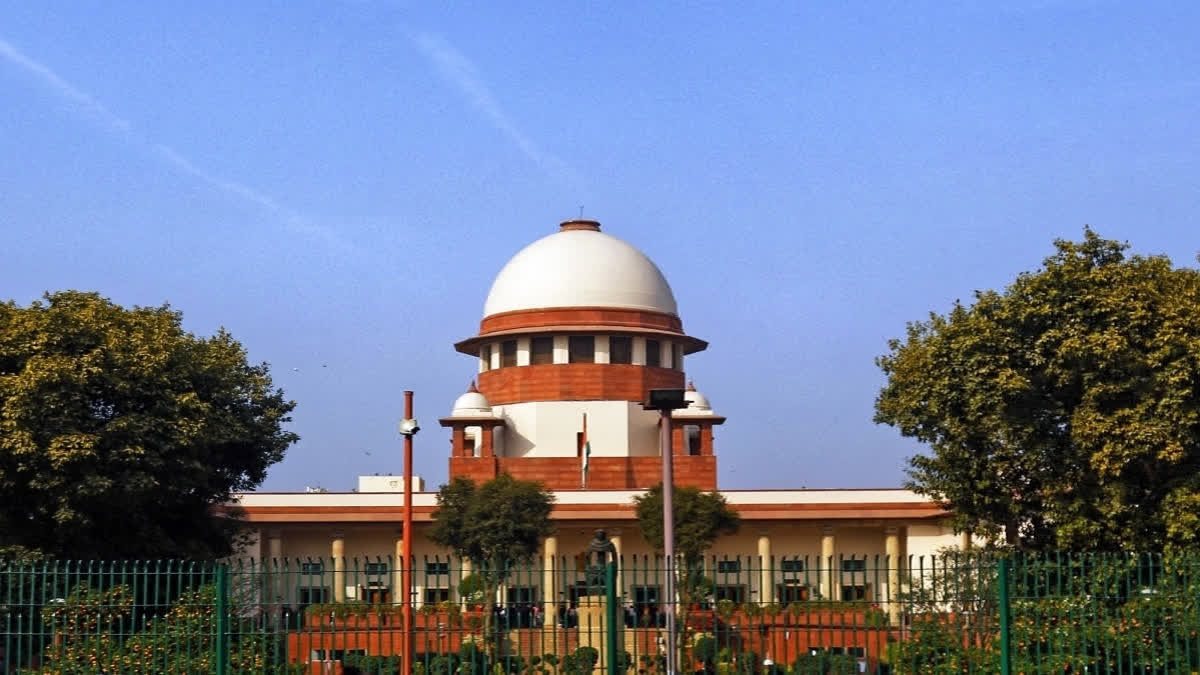New Delhi: The Supreme Court on Wednesday shot a volley of tough questions at the Enforcement Directorate in connection with an accused seeking every document collected by the central agency during the investigation.
A three-judge bench comprising justices Abhay S Oka, Ahsanuddin Amanullah and Augustine George Masih was hearing an appeal related to the supply of documents in a money laundering case.
The apex court put up a specific query to ED, how can an accused be denied a document merely over a technical ground and added, "Sometimes there may be such a clinching document which ED may have".
The bench said it's the central agency's contention that this clinching document cannot be made available to the accused after filing the chargesheet.
"Whether it does not vitiate his right under Article 21 (which guarantees right to life and liberty)?," said the bench, querying further, can the document be denied to the accused solely on a technical ground?
The bench insisted, "Why can't everything be transparent?" The bench emphasised that courts and investigating agencies cannot be rigid in connection with furnishing documents to the accused.
The bench discussed in detail on the aspect whether an accused for bail can seek a document, before the stage of the trial.
Additional Solicitor General SV Raju, representing the ED, contended that if the accused knows that there are documents, then he can ask, but if he does not know and just assumes in that case then he cannot seek a roving enquiry.
"Since this is a case for bail, times have changed……Are we going to be so rigid that the person is facing prosecution but we go and say that the documents are protected? Will this be justice?," the bench queried.
The bench was informed that the accused would have the list of documents and can seek it under Section 91 of the Code of Criminal Procedure (CrPC).
The bench said in money laundering cases, the agency may retrieve thousands of documents but it may only rely on 50 of them, and the accused may not remember every document. "He may then ask that whatever document has been recovered from my place," said the bench.
The ASG said the accused has a list of documents and cannot ask for them unless it is "necessary" and "desirable". The bench noted that an accused has the right to seek documents if he/she relies on them to seek bail or dismissal of the case. Raju argued that there is no right as such and added that the accused can request the court to look into this.
The ED's counsel pointed out that suppose no document exists and it is a clear case of conviction and the accused only wants to delay the trial, then in that case it cannot be a right.
The bench asked how the accused would know the document is necessary without seeing it. The ED’s counsel emphasised that an accused getting access to a document before trial may vitiate an ongoing investigation. After a detailed hearing in the matter, the apex court reserved its judgment.
The Prevention of Money Laundering Act (PMLA) is in the spotlight due to the arrest of several top politicians like Delhi Chief Minister Arvind Kejriwal, Jharkhand Chief Minister Hemant Soren, AAP leader Manish Sisodia, and BRS leader K Kavitha.



